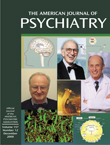As a family physician, I seldom have the opportunity to reevaluate my whole approach to one area of medical practice, least of all psychiatry. After all, my approach to psychopathology is pretty routine: listen, talk, counsel, prescribe, arrange follow-up, and wait for the results, which are fairly predictable. Some patients improve and others don’t, despite the best counseling and the “right” medication.
Enter a new book that recently landed on my desk: The Awakening, a first-time-ever English translation by Friedrich Zuendel of an obscure nineteenth-century German classic. After picking it up with more than a little skepticism, I found myself unable to put it down and increasingly convinced of its relevance for everyone who feels (as I do) that despite the advances of the Prozac era, we have not yet arrived at a satisfactory understanding of the place where mind, body, and spirit intersect.
A gripping, if unpretentious, volume, The Awakening describes the psychic turmoil that ensues when a pastor attempts to aid an emotionally disturbed woman in his village. There are far-reaching sequelae: intense confrontations with occult forces, subsequent resolutions of psychosomatic disorders, and inexplicable healings and “miracles.” (The book is, incidentally, a nonfiction account, and the paranormal incidents it describes were well documented at the time of its initial publication in 1880.)
Eventually the woman was healed to such an extent that she regained complete mental stability and normal function. Even more important, however, dozens and then hundreds of others in her village were affected by her transformation and experienced as a result improved spiritual, mental, and physical health—in that order.
Psychiatrists since (and even before) Freud have recognized the importance of the roles played by both conscience and subconscience in mental health and have long advocated the practice of “talking things out” with emotionally disturbed clients. The Awakening goes several steps further to examine the practice of confidential voluntary confession, the cathartic potential of remorse, and the power of forgiveness to resolve or dissipate tensions that arise from guilt, duplicity, petty resentments, and even deep-seated grudges.
As copies of The Awakening have made their rounds among my staff, patients, and friends (I’ll admit that I recommend books as often as nonprescription medicines), I have been surprised by its apparent benefits. A 17-year-old with oppositional disorder and dysthymia was finally able to open up to her mother, who tells me they have even begun to develop a genuinely warm relationship. An octogenarian with decades-long depressive disorder has finally admitted her vulnerability and begun to discuss her worries and fears. A 55-year-old who read it recently revealed a heavy burden he had never dared speak of with anyone, even (or especially?) his immediate family. Another man, facing a midlife crisis, told me that the book helped him make headway in dealing with suppressed tensions that weighed on him so heavily that he was beginning to lose his emotional stability. I have seen clouds of depression lift, levels of functioning improve, and the reduction (and even, in a few cases, the discontinuation) of psychotropic medications.
Certainly, a book can never be a cure-all, and I’m not about to close my practice, but in helping me to reexamine the effect of the mind on the body, The Awakening has given me a new appreciation for the mysterious workings of the human spirit and a new respect for the power of counseling as an integral part of maintaining my patients’ mental health. Perhaps it will do the same for you.

